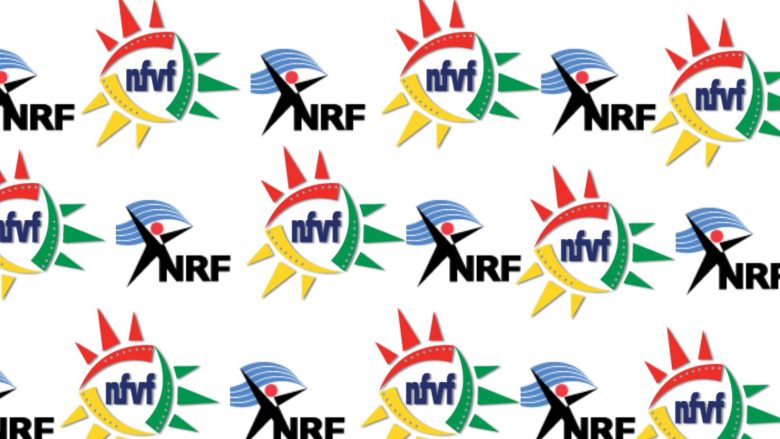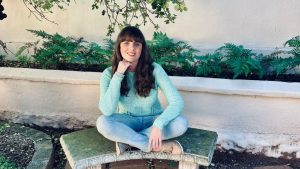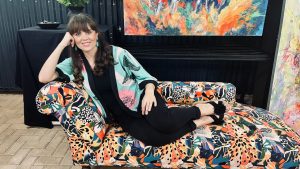For the past few years, I’ve dreamed of doing my master’s degree—either in Creative Writing or Film Studies. Both are close to my heart and deeply connected to the work I’ve already been doing as a storyteller and filmmaker.
Earlier this year, I took a bold step and applied to the University of San Francisco’s master’s program. To my absolute delight, I was accepted! It was a beautiful moment—proof that this dream is not only valid but possible.
But of course, international studies come with a hefty price tag. I applied for the Fulbright Scholarship, hoping it would make my US studies financially feasible. Unfortunately, I wasn’t selected. Disappointed but not defeated, I turned my focus to local opportunities.
In March of this year, I applied for the NFVF International Bursary. According to my application portal, my submission still hasn’t been reviewed. While I continue to hope for positive news, time keeps ticking, and so I’ve decided to expand my options.
I’ve now also applied for the NFVF National Bursary, with the goal of pursuing my master’s in 2026—this time most likely at AFDA Cape Town, instead of Port Elizabeth where I completed my Honours. Whether it’s through creative writing or film studies, I remain committed to furthering my craft and using storytelling to advocate for inclusion, accessibility, and bold narratives.
I’ve also submitted my application to the National Research Foundation, if I want to do my creative writing studies at a public university.
The road to a master’s is rarely straightforward, but I’m keeping the faith—and moving forward, step by step.
*

This is my letter of motivation that I submitted to the NFVF. In this letter, I state why I need the funding, where I think my studies will lead me and how I think my chosen field will benefit my community and South Africa as a whole.
*
Letter of Motivation
From: Vicki Fourie
To: The National Film and Video Foundation of South Africa
Dear Bursary Committee,
My name is Vicki Fourie, and I am writing to express my sincere and heartfelt motivation for applying for the National Film and Video Foundation bursary to fund my Master’s degree in film at AFDA Cape Town. As a profoundly deaf South African woman who wears cochlear implants, I have spent my life navigating spaces that were never designed with people like me in mind. This reality has shaped my determination to create inclusive narratives and authentic representations of disability in film. I believe my studies will not only transform my personal trajectory but will also open doors for marginalized communities to be seen, heard, and valued on screen and in society.
My personal and professional journey has prepared me uniquely for this work. Although I was not born profoundly deaf, my hearing loss was discovered when I was two years old. The cause remains unknown. I grew up learning to adapt in a world of sound that often felt closed to me. Through perseverance and the support of my family—especially my mother, who is now unemployed—I learned to communicate, to connect, and ultimately, to find my voice. My father passed away when I was 27 years old, an experience that deepened my appreciation of life’s fragility and the urgency of using my time meaningfully. Despite these challenges, or perhaps because of them, I have built a career as a writer, motivational speaker, and emerging filmmaker committed to telling stories that matter.
In 2025, my commitment to authentic disability representation culminated in being awarded a prestigious grant to develop my first short film, ThisAbility. This project aims to dismantle stereotypes about deafness by portraying a deaf protagonist navigating complex personal and social challenges. As highlighted in The Herald article, “Vicki’s Bold New Vision for Disability in Film,” this film is already sparking important conversations about how deaf and disabled people are portrayed in South African media. A local newspaper also reported on how this grant is enabling me to bring my vision to life. I am currently in development with this project, and the process is affirming my conviction that inclusive storytelling is both necessary and powerful.
The Kouga Express has also shared how I am currently assembling a local crew team in my hometown, creating opportunities for people who have never worked on a film set before. This is an important part of my mission: to not only tell stories about underrepresented communities but to ensure those communities have a meaningful stake in how the stories are made. By training and mentoring local crew members, I am investing in long-term skills development and contributing to a more inclusive creative economy.
I am applying to pursue my Master’s degree in film at AFDA Cape Town because I believe this qualification is the next crucial step in equipping me with the advanced technical, theoretical, and leadership skills required to produce professional, impactful films that center disabled voices. The AFDA curriculum combines rigorous artistic training with hands-on production experience, enabling me to grow as a director, screenwriter, and producer. This program will also connect me with a network of mentors, collaborators, and industry leaders who are equally passionate about building a diverse, thriving South African film landscape.
However, without financial assistance, I will not be able to realize this goal. My mother, who has been my primary supporter throughout my life and career, is currently unemployed and unable to contribute to the substantial costs associated with tuition, accommodation, medical care, and production expenses. My father’s passing in my adult years means there is no other family income or inheritance to draw from. Additionally, because of my disability, I incur considerable monthly medical expenses—approximately R3,000—to maintain my cochlear implant technology, audiological support, and related health needs. For these reasons, I am requesting funding to cover my tuition, living expenses, travel costs between Port Elizabeth and Cape Town, medical expenses, and production costs over the two years of study.
My intention is not simply to further my own career but to create work that has a lasting, positive impact on my community and South Africa as a whole. Growing up deaf in a predominantly hearing society showed me firsthand how the lack of representation perpetuates exclusion. When children with disabilities never see themselves reflected in stories, they internalize the belief that their lives are less valuable or interesting than those of others. I believe this is a loss for everyone—because stories have the power to unite, heal, and reimagine what is possible. Through film, we can confront prejudice, celebrate resilience, and forge new understandings.
The Kouga Express article describes how, right now, I am putting together a local crew in the Kouga region to work on ThisAbility. This process demonstrates how investing in emerging filmmakers from marginalized backgrounds not only creates new opportunities but also uplifts entire communities. By leading this production, I am showing that inclusive filmmaking can spark economic activity, inspire young people, and challenge outdated narratives about disability. This experience is reinforcing my conviction that when we create space for underrepresented voices, we all benefit. The ripple effect is profound: young people see new possibilities for themselves; audiences learn to see each other with empathy; and our creative industries become richer, more innovative, and more inclusive.
I envision using my Master’s degree to continue this work at a larger scale. I plan to develop a slate of short and feature films that explore the complexities of disability, identity, and belonging. These films will be made in collaboration with other disabled artists, ensuring authenticity at every stage. They will also create employment and mentorship opportunities for youth in my region, especially those who, like me, have faced social and economic barriers to participation.
In addition, I am committed to working with schools and community organizations to offer film literacy workshops, screenings, and discussions that help dismantle stereotypes and inspire the next generation of storytellers. My goal is to build an ecosystem where disabled creators are valued contributors to South Africa’s cultural and economic life. I see this not only as my personal calling but as a vital contribution to our country’s broader efforts toward social justice, equality, and transformation.
South Africa has made significant strides in advancing disability rights and awareness. However, representation in mainstream media still lags far behind. According to research cited by the United Nations, less than 2% of media content globally reflects authentic experiences of people with disabilities. Locally, disabled South Africans continue to be portrayed through reductive stereotypes—either as objects of pity or as inspirational figures divorced from real, nuanced lives. This erasure is not only unjust; it is also a missed opportunity for connection, understanding, and cultural enrichment.
I believe the NFVF bursary will be an investment not only in my education but in a broader movement to change this reality. By equipping me with the skills and resources to develop high-quality films about disability, the bursary will help amplify the voices of millions of South Africans whose stories have too often been overlooked. My work will challenge audiences to rethink assumptions, expand imaginations, and celebrate the richness of our collective humanity.
I am also deeply aware of the economic potential of inclusive filmmaking. Globally, audiences are increasingly demanding diverse stories, and companies are recognizing the business case for representation. By centering disabled voices and working with diverse teams, we can tap into under-served audiences and build sustainable models for growth. I am committed to demonstrating that films about disability are not only culturally vital but also commercially viable.
Throughout my journey, I have learned that adversity can be a powerful catalyst for creativity and empathy. My experiences navigating profound deafness have taught me resilience, innovation, and a deep appreciation for the power of storytelling to transcend barriers. They have also instilled in me a sense of responsibility to use my skills to uplift others.
Receiving this bursary would not only alleviate the significant financial burden my family and I face but would also allow me to focus fully on developing my craft and contributing meaningfully to the South African film industry. It would be a lifeline that enables me to fulfill my potential and to pay that opportunity forward by mentoring and collaborating with others.
In closing, I want to express my gratitude for considering my application and for the work the NFVF does to support emerging filmmakers who are committed to shaping a more inclusive and dynamic industry. I am determined to honor this trust by producing work that makes a difference. With your support, I know I can help build a future where all South Africans see themselves reflected on screen with dignity, complexity, and humanity.
Thank you for considering my request.
Yours sincerely,
Vicki Fourie
*

This is my letter of motivation that I submitted to the NRF. In this letter, I state why I need the funding, where I think my studies will lead me and how I think my chosen field will benefit my community and South Africa as a whole.
*
Letter of Motivation
From: Vicki Fourie
To: The National Research Foundation
Dear Committee Members,
I am writing to express my strong motivation for applying for the NRF Master’s Bursary to support my studies in Creative Writing. I believe my project, background, and aspirations are well-aligned with the NRF’s mission to advance knowledge production, promote social transformation, and empower marginalized voices in South Africa.
I am a South African citizen with a lifelong disability. I was diagnosed with profound hearing loss at age two, and I wear cochlear implants to help me navigate a predominantly hearing world. Living with this disability has presented immense communication barriers and social isolation. However, it has also shaped my resilience, empathy, and commitment to advocacy.
My proposed Master’s research focuses on writing a memoir that documents my experience growing up deaf and explores themes of identity, communication, and belonging. Alongside the creative manuscript, I will produce a critical analysis of the memoir process and develop a curriculum for teaching memoir writing in South African universities. My goal is to empower students—especially those from marginalized and underrepresented backgrounds—to explore personal narrative as a means of cultural preservation and self-expression.
This project aligns with national imperatives of social inclusion, transformation, and diversity. It supports the National Development Plan’s vision for an inclusive society that celebrates all voices. It also contributes to the creative industries by developing new literary work and practical teaching tools. My research addresses Sustainable Development Goals 4 (Quality Education), 10 (Reduced Inequalities), and 16 (Peace, Justice, and Strong Institutions).
My circumstances underscore the critical need for this bursary. My mother is unemployed and unable to contribute financially to my studies. My father passed away when I was 27 years old. I do not receive any financial support from my family. As someone who has overcome significant obstacles to complete my Honours degree, I am committed to academic excellence and meaningful community engagement. However, without NRF funding, it will be impossible for me to afford tuition, living costs, research expenses, and accessible resources required to successfully complete this degree.
Through this Master’s programme, I will deepen my creative and scholarly skills while making a lasting contribution to disability representation, inclusive education, and cultural storytelling in South Africa. After graduation, I intend to share my curriculum with universities, facilitate workshops, and mentor emerging writers. My vision is to foster a culture where diverse experiences are not only acknowledged but valued as essential to our shared national identity.
In summary, I respectfully request that you consider my application for the NRF bursary based on the following:
- I am a person living with a profound disability who has consistently demonstrated resilience and commitment to personal and community development.
- I have no financial support from my parents or immediate family.
- My project directly contributes to transformation, social inclusion, and creative skills development in line with NRF priorities.
- I am dedicated to producing work that will benefit students, educators, and readers across South Africa.
Thank you for considering my application and for the NRF’s continued commitment to empowering South African scholars. I am eager to bring this research to life and to contribute to a more inclusive and representative literary landscape.
Yours sincerely,
Vicki Fourie



